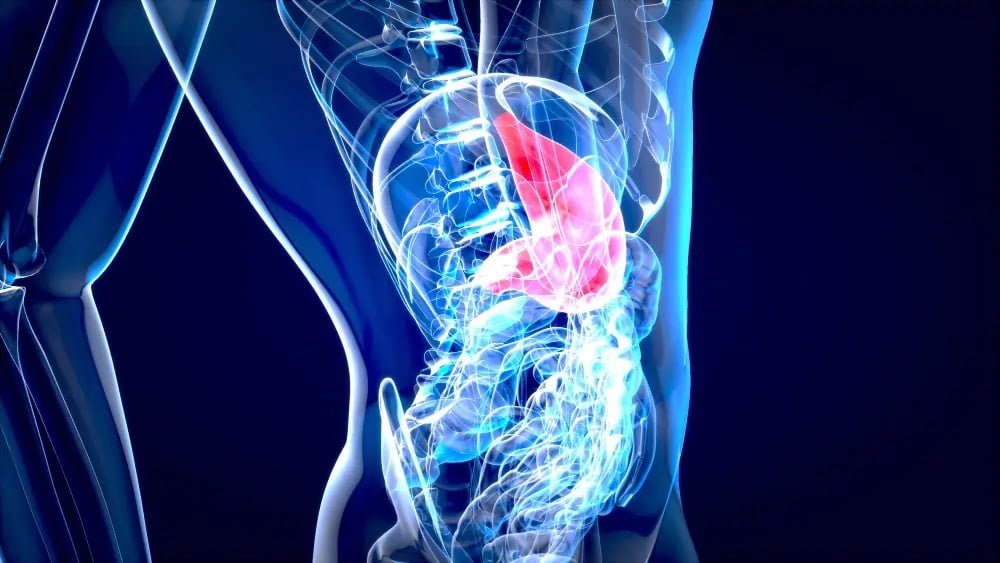Headaches are one of the most common complaints among people who have contracted COVID-19, the disease caused by the novel coronavirus SARS-CoV-2. But how do COVID-19 headaches differ from other types of headaches, and what can you do to relieve them?
What Causes COVID-19 Headaches?
Headaches can have many different causes, such as stress, dehydration, lack of sleep, or underlying conditions. However, some headaches may be directly related to COVID-19 infection. According to Dr. Igor Koralnik, chief of neuroinfectious diseases and global neurology at Northwestern Medicine, COVID-19 headaches can manifest differently among individuals. Some may experience a constant tension headache, while others may have a throbbing pain like a migraine attack.
Several possible mechanisms could explain why COVID-19 causes headaches. One is that the virus may trigger an inflammatory response in the body, which can affect the nerves and blood vessels in the head. Another is that the virus may directly invade the brain or the lining of the brain, causing inflammation or damage. A third possibility is that the virus may alter the levels of certain chemicals in the brain, such as serotonin, dopamine, or histamine, which can affect the perception of pain.
How Common Are COVID-19 Headaches?
Headaches are one of the most frequently reported symptoms of COVID-19, especially in the early stages of the infection. Data from the COVID Symptoms Study, which has been collecting information from millions of people around the world, revealed that headaches were one of the five most common symptoms of the Omicron variant, along with runny nose, fatigue, sneezing, and sore throat.
A study of 288 people with COVID-19 found that 22.2% of them developed neurological symptoms, and of those, 69.1% had headaches. The average duration of the headaches was 7 days, but they persisted for more than 30 days in 18% of the cases and more than 3 months in 10%. Another study of 905 people with COVID-19 headaches found that half of them experienced headaches for longer than 2 weeks.
People who have a history of primary headaches, such as migraine or tension-type headaches, may be more likely to develop COVID-19 headaches than those who do not. Coughing or head movement may also worsen the intensity of the headache.
How to Treat COVID-19 Headaches?
The treatment of COVID-19 headaches depends on the type and severity of the headache, as well as the presence of other symptoms or complications. Some general measures that may help include:
– Resting in a quiet and dark room
– Drinking plenty of fluids to stay hydrated
– Applying a cold or warm compress to the forehead or temples
– Taking over-the-counter pain relievers, such as acetaminophen or ibuprofen, as directed by your doctor
– Avoiding alcohol, caffeine, and tobacco, which may trigger or worsen headaches
– Practicing relaxation techniques, such as deep breathing, meditation, or yoga
– Seeking medical attention if the headache is severe, persistent, or accompanied by other worrisome signs, such as fever, confusion, vision changes, neck stiffness, or difficulty breathing.
Some people may also benefit from prescription medications, such as triptans, anti-inflammatories, or steroids, to treat their COVID-19 headaches. However, these drugs may have side effects or interactions with other medications, so they should be used only under the guidance of a doctor.
How to Prevent COVID-19 Headaches?
The best way to prevent COVID-19 headaches is to avoid getting infected with the virus in the first place. This can be done by following the public health recommendations, such as:
– Getting vaccinated against COVID-19 as soon as possible
– Wearing a mask or face covering when in public or around people who are not from your household
– Practicing social distancing and avoiding large gatherings
– Washing your hands frequently and thoroughly with soap and water or using an alcohol-based sanitizer
– Cleaning and disinfecting frequently touched surfaces and objects
– Staying home and isolating yourself if you have any symptoms of COVID-19 or have been exposed to someone who has it
– Getting tested for COVID-19 if you have any symptoms or have been in contact with someone who has it
Conclusion
Headaches are a common symptom of COVID-19, but they can vary in type, intensity, and duration. The virus itself may cause them, the immune system’s response to it, or the changes in the brain’s chemistry. They can be treated with simple measures, such as rest, hydration, and painkillers, or with prescription drugs if needed. However, the best way to avoid COVID-19 headaches is to prevent infection by following the preventive measures and getting vaccinated.
FAQs
Q: What does a COVID-19 headache feel like?
A: A COVID-19 headache can feel like a tension headache or a migraine, depending on the individual. It may cause moderate to severe pain on both sides of the head, a pulsing or pressing sensation, and sensitivity to light, sound, or smell. It may also be accompanied by other symptoms, such as fever, sore throat, loss of taste or smell, or muscle aches.
Q: How common are COVID-19 headaches?
A: Headaches are one of the most frequently reported symptoms of COVID-19, especially in the early stages of the infection. Data from the COVID Symptoms Study revealed that headaches were one of the five most common symptoms of the Omicron variant³. A study of 288 people with COVID-19 found that 22.2% of them developed neurological symptoms, and of those, 69.1% had headaches. Another study of 905 people with COVID-19 headaches found that half of them experienced headaches for longer than 2 weeks.
Q: How to treat COVID-19 headaches?
A: The treatment of COVID-19 headaches depends on the type and severity of the headache, as well as the presence of other symptoms or complications. Some general measures that may help include resting, drinking fluids, applying a cold or warm compress, taking over-the-counter pain relievers, avoiding alcohol, caffeine, and tobacco, and practicing relaxation techniques. Some people may also benefit from prescription medications, such as triptans, anti-inflammatories, or steroids, to treat their COVID-19 headaches. However, these drugs may have side effects or interactions with other medications, so they should be used only under the guidance of a doctor.
Q: How to prevent COVID-19 headaches?
A: The best way to prevent COVID-19 headaches is to avoid getting infected with the virus in the first place. This can be done by following public health recommendations, such as getting vaccinated, wearing a mask, practicing social distancing, washing hands, cleaning surfaces, staying home if sick, and getting tested if exposed or symptomatic.
Q: What are the possible causes of COVID-19 headaches?
A: Several possible mechanisms could explain why COVID-19 causes headaches. One is that the virus may trigger an inflammatory response in the body, which can affect the nerves and blood vessels in the head. Another is that the virus may directly invade the brain or the lining of the brain, causing inflammation or damage. A third possibility is that the virus may alter the levels of certain chemicals in the brain, such as serotonin, dopamine, or histamine, which can affect the perception of pain.





 Afrikaans
Afrikaans Albanian
Albanian Amharic
Amharic Arabic
Arabic Armenian
Armenian Azerbaijani
Azerbaijani Basque
Basque Belarusian
Belarusian Bengali
Bengali Bosnian
Bosnian Bulgarian
Bulgarian Catalan
Catalan Cebuano
Cebuano Chichewa
Chichewa Chinese (Simplified)
Chinese (Simplified) Chinese (Traditional)
Chinese (Traditional) Corsican
Corsican Croatian
Croatian Czech
Czech Danish
Danish Dutch
Dutch English
English Esperanto
Esperanto Estonian
Estonian Filipino
Filipino Finnish
Finnish French
French Frisian
Frisian Galician
Galician Georgian
Georgian German
German Greek
Greek Gujarati
Gujarati Haitian Creole
Haitian Creole Hausa
Hausa Hawaiian
Hawaiian Hebrew
Hebrew Hindi
Hindi Hmong
Hmong Hungarian
Hungarian Icelandic
Icelandic Igbo
Igbo Indonesian
Indonesian Irish
Irish Italian
Italian Japanese
Japanese Javanese
Javanese Kannada
Kannada Kazakh
Kazakh Khmer
Khmer Korean
Korean Kurdish (Kurmanji)
Kurdish (Kurmanji) Kyrgyz
Kyrgyz Lao
Lao Latin
Latin Latvian
Latvian Lithuanian
Lithuanian Luxembourgish
Luxembourgish Macedonian
Macedonian Malagasy
Malagasy Malay
Malay Malayalam
Malayalam Maltese
Maltese Maori
Maori Marathi
Marathi Mongolian
Mongolian Myanmar (Burmese)
Myanmar (Burmese) Nepali
Nepali Norwegian
Norwegian Pashto
Pashto Persian
Persian Polish
Polish Portuguese
Portuguese Punjabi
Punjabi Romanian
Romanian Russian
Russian Samoan
Samoan Scottish Gaelic
Scottish Gaelic Serbian
Serbian Sesotho
Sesotho Shona
Shona Sindhi
Sindhi Sinhala
Sinhala Slovak
Slovak Slovenian
Slovenian Somali
Somali Spanish
Spanish Sundanese
Sundanese Swahili
Swahili Swedish
Swedish Tajik
Tajik Tamil
Tamil Telugu
Telugu Thai
Thai Turkish
Turkish Ukrainian
Ukrainian Urdu
Urdu Uzbek
Uzbek Vietnamese
Vietnamese Welsh
Welsh Xhosa
Xhosa Yiddish
Yiddish Yoruba
Yoruba Zulu
Zulu